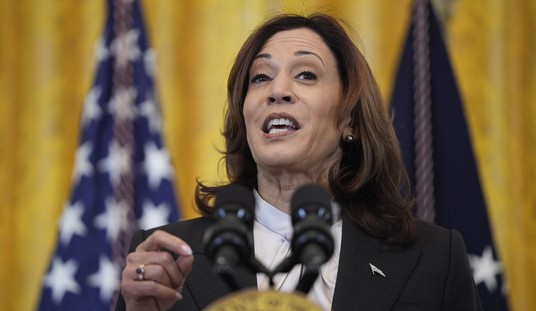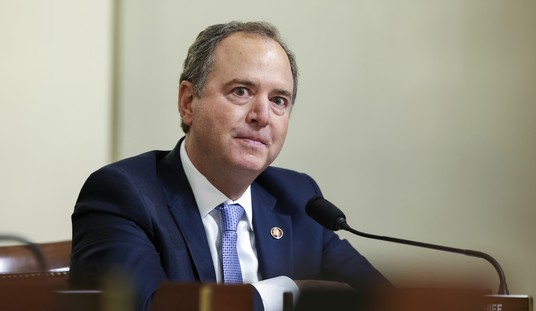On his 100th day in office, President Barack Obama started campaigning for re-election in 2012. He went to a small town in Missouri, a red state he didn't carry last year, and boasted that "we've begun the work of remaking America."
Indeed, he has begun to do exactly that with trillions of dollars turned over to the executive branch of government by the legislative branch. A few days later, the announced resignation of Supreme Court Justice David Souter gave Obama the additional power to use the judicial branch to remake America into Obama-nation.

When asked what sort of a justice he will be looking for to fill Souter's seat, Obama replied that his major criteria will be the candidate's "empathy" for the poor, the gays and other minorities. This embellished Obama's previously proclaimed view of the judiciary's mission: to engage in socio-economic redistribution rather than to enforce the U.S. Constitution as written.
Obama revealed his long-term goals for the judiciary in a radio interview on Chicago's WBEZ-FM in 2001, when he complained that the very activist Earl Warren court had limited itself to changing some of our laws but had failed to order "redistributive change" of our economic system by breaking "free from the essential constraints that were placed by the Founding Fathers in the Constitution." Students of the judiciary know that it was the Earl Warren court that started the long lines of activist decisions in many areas, including religion, elections, property rights, immigration and criminal law.
Recommended
David Souter, who was President George H.W. Bush's mistake, flipped from presumed conservative to liberal as soon as the media began ridiculing him for tardiness in completing opinions. The same month that Souter voted for the only time with conservatives on the abortion issue, in Rust v. Sullivan (1991), Linda Greenhouse of The New York Times declared, "Lawyers who watch the Court closely have taken to referring to Justice Souter's chambers as a black hole, from which nothing emerges."
Then, in rapid-fire attack, ABC World News Tonight and even Souter's close-to-home Boston Globe wrote scathing criticisms of Souter. They were angry that he voted against abortion, but their criticisms humiliated him for his slow writing abilities.
Souter got the message and rarely voted again with conservatives in high-profile cases. The liberal media, in gratitude, never criticized him again.
At the oral argument before the Supreme Court in the 2004 Pledge of Allegiance case, when plaintiff Michael Newdow was trying to get the Court to remove the words "under God," Souter came up with the novel argument that "under God" doesn't really mean under God. He suggested that the phrase is so "diluted" that it should be "beneath the constitutional radar."
Under the radar is exactly where the secularists want to conceal all mention of God and religion.
Confirmation hearings should ascertain how much Souter's successor will rely on foreign law. This has become a live issue because of recent remarks by Justice Ruth Bader Ginsburg.
For example, does Obama's nominee agree with Souter, who joined in the Roper v. Simmons (2005) decision, in which the Court cited foreign laws, "international opinion" and even an unratified treaty to rationalize overturning the death penalty for a 17-year-old who had committed a particularly brutal and premeditated murder? This decision overturned more than 200 years of U.S. law and history, rewrote the Eighth Amendment and knocked out the laws of 20 states.
Since Obama calls himself a "citizen of the world," he may agree with incorporating foreign law into Supreme Court decisions. He chose a committed globalist as his State Department legal adviser, former Yale Law School Dean Harold Koh.
Koh calls himself a transnationalist, which means believing that the "living" Constitution allows us to import the fiction of what is called international law into U.S. law, thereby putting the United States under a global legal system. The Senate should require all judicial nominees to proclaim their adherence to the U.S. Constitution as written reject the use of any foreign laws.
We would also like to know if Obama's Supreme Court nominee is cut from the same cloth as his first judicial nomination, David F. Hamilton. He's a former fundraiser for ACORN and a former leader of the Indiana chapter of the ACLU.
Hamilton made national news in 2005 when, as district judge, he enjoined the speaker of Indiana's House of Representatives from permitting "sectarian" prayers. In Hamilton's ruling, using "Christ's name or title" is "sectarian," but it is not sectarian for a Muslim imam to offer a prayer to "Allah."
The Seventh Circuit overturned Hamilton's peculiar parsing of the liberal dogma of separation of church and state. However, in seeking to elevate him to the Seventh Circuit Court of Appeals, White House officials praised Hamilton as a judge who has shown "empathy with real people."

























Join the conversation as a VIP Member